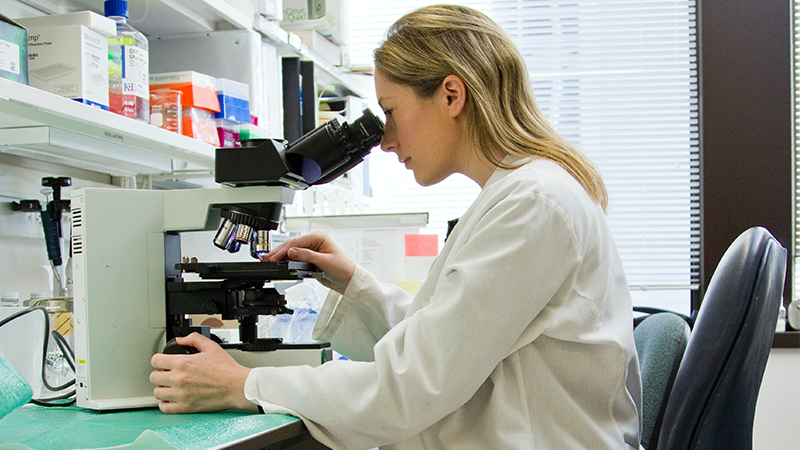Understanding what triggers your own immune system is a very smart thing to do, especially if you are the owner of an autoimmune disease.
You see, a healthy immune system’s job is to protect you from foreign invaders such as viruses, bacteria, fungi, parasites and cancer cells. It innately knows not to attack itself. Unfortunately, in autoimmune disease, your immune system becomes terribly confused and it begins attacking your own cells as if they are a foreign intruder. If you are someone that has an autoimmune disease or know someone close to you with one, you will know the pain and anguish autoimmune dishes out. Organ & tissue destruction and dysfunction is not a joy to live with. This is why following an autoimmune diet is vital to managing your condition.
Interestingly, autoimmune disease is the third most common disease after cancer and heart disease with women affected at a rate of 75% more than men. Surprisingly, I see so little written about it in comparison.
What does an autoimmune disease do to my body?
Autoimmune disease happens to be on the increase, with certain types given a name in line with the organ or body tissue that is being attacked. An example is the autoimmune disease that I personally live with, day-in-day-out. I have Hashimoto’s Disease which is related to the destruction of the thyroid gland, named after the scientist who discovered it. Basically, autoimmune diseases can attack nearly every part of your body including the nervous system, heart, muscles, joints, gut, lungs, liver, kidney, eyes, thyroid, joints, and skin. Sadly, once you have one autoimmune condition you are also more at risk of having another autoimmune condition or further tissues on target for attack.
Some people have autoimmune conditions that attack multiple tissues. For some people this is so serious that they are prescribed strong drugs which weaken the immune system, this is to make sure that their body does not destroy itself as it can be life threatening. These people are of all ages. These are the people we need to protect from COVID-19 because an immune system that has been supressed on purpose, cannot fight this terrible virus.

What are some common types of autoimmune diseases?
Whilst around 80-100 different autoimmune diseases have been identified, here are some common ones you may have heard of:
| Tissue being attacked | Name of autoimmune condition |
| Thyroid Gland | Hashimotos |
| Pancreas | Type 1 Diabetes |
| Intestines/Stomach | Celiac Disease, Ulcerative Colitis, Crohn’s Disease & Pernicious Anaemia |
| Adrenal glands | Addison’s Disease |
| Joints | Rheumatoid arthritis |
| Nervous System | Multiple Sclerosis |
| Bladder | Interstitial Cystitis |
| Liver | Autoimmune Hepatitis |
| Salivary Glands | Sjogren’s Syndrome |
| Skin & Joints | Psoriasis |
| Spine | Ankylosing Spondylitis |
Then there are autoimmune conditions that affect multiple tissues including lupus (systemic lupus erythematosus) which attacks the joints, skin, kidneys, blood cells, brain, heart and lungs and Sarcoidosis which destroys the lungs, skin, and lymph nodes.
Autoimmune is a huge subject, far bigger than this blog could possibly cover, so I will do the best I can in explaining it to help you better understand your condition, and the importance of following an autoimmune diet.

Why do people get autoimmune diseases?
Simply put, scientific research highlights that it is a combination of genetics and environmental triggers. These triggers include being exposed to bacterial, viral & parasitic infections, stress, exposure to protein components present in certain foods, toxic chemicals, certain medications, and low levels of Vitamin D.
For the rest of this blog, I will focus on the dietary triggers of autoimmune because one of the most important and powerful factors of autoimmunity is your diet. This is where autoimmune sufferers have real power to help themselves.

So how does eating certain foods initiate an attack on your body by your immune system?
It is all about molecular mimicry. This is where the food protein has a very similar structure to some of your own tissue. Normally when the gut lining is healthy, most of these food proteins cannot get through. However when this gut barrier has been breached undigested food proteins are able to enter the bloodstream. Your immune system is not accustomed to these large food particles entering the body and it mistakes them for a foreign invader and will mount a response to attack. Unfortunately, some of these food proteins look very similar in structure to human self-tissue and your body then produces antibodies against itself and starts attacking tissues. As a result, every time that food is eaten the immune system goes into attack.
How will seeing a naturopath help me manage my autoimmune disease?
As a naturopath, one of the most important aims when working with an autoimmune sufferer is the healing of the gut so that the gut lining becomes strong and non-leaky and undesirable food particles cannot get through. In addition, the health of your gut microbiome (bacteria) is also involved.
An autoimmune disease diet and lifestyle program are also a focus to help sufferers reduce the attack on self, balance immune dysregulation, improve gut permeability and reduce inflammation. Foods to avoid with autoimmune disease include gluten, grains, dairy, eggs, beans & legumes, nightshade vegetables (white potato, eggplant, tomatoes, capsicum, and spices chilli, paprika, goji berries).
The good news is that eliminating some of these foods for many people does not have to be a life-time sentence due to the reintroduction of certain foods following an elimination period. As an autoimmune sufferer, I have spent hours experimenting with recipes where I supplement ingredients. An example is the use of tapioca flour & green banana flour instead of normal grain flours when baking bread, muffins, and cakes.
Keep an eye on my next blog which will discuss the autoimmune diet and recipes in more detail. If you feel that you may benefit from advice on managing your condition more strategically, please book a consultation.

References
Fasano A. (2012). Leaky gut and autoimmune diseases. Clinical reviews in allergy & immunology, 42(1), 71–78. https://doi.org/10.1007/s12016-011-8291-x
Richard-Eaglin, A., & Smallheer, B. A. (2018). Immunosuppressive/Autoimmune Disorders. Nursing Clinics of North America, 53(3), 319–334. doi:10.1016/j.cnur.2018.04.002
Vojdani A. (2015). Molecular mimicry as a mechanism for food immune reactivities and autoimmunity. Alternative therapies in health and medicine, 21 Suppl 1, 34–45. https://pubmed.ncbi.nlm.nih.gov/25599184/
Vojdani, A., Gushgari, L. R., & Vojdani, E. (2020). Interaction between food antigens and the immune system: Association with autoimmune disorders. Autoimmunity reviews, 19(3), 102459. https://doi.org/10.1016/j.autrev.2020.102459
Wang, L., Wang, F. S., & Gershwin, M. E. (2015). Human autoimmune diseases: a comprehensive update. Journal of internal medicine, 278(4), 369–395. https://doi.org/10.1111/joim.12395










